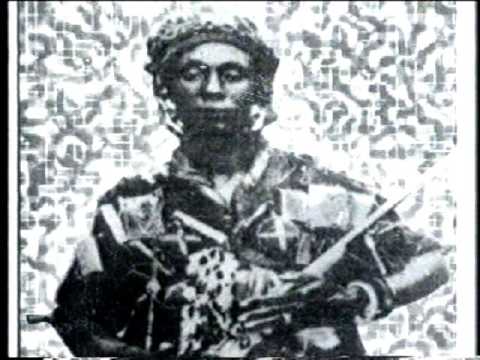
History tell’s you what political time a day it is – Dr. John Henrike Clarke
The First West India Regiment was chiefly from Jamaica whilst the Second was from Barbados. The soldiers were Negroes but their officers were white British and white West Indian. They served in the West Indies in wars with the French fighting small ferocious battles in Dominica, Martinique and Guadeloupe. After peace was established between Britain and France in 1815, they started their long and distinguished connection with West Africa which lasted for just over a century.
Before then, soldiers in West Africa were mostly British, although there were also a few Africans. Both British and Africans had not proved very satisfactory. The British soldiers sickened easily and also asked for the then excessive salary of a shilling a day. The African soldiers tended either not to obey orders at all, or to obey them too literally. On one occasion they locked up for a night in jail their Commanding Officer who returned to barracks after midnight, because they had been told to arrest anyone found loitering after that hour. It was not too surprising that the Government began to look elsewhere for soldiers.
The West India Regiment served in every war in West Africa in which the British were engaged. They were in the Ashanti Wars in Ghana in 1823-4 and the later campaigns. In 1825, a recruiting company was formed in Sierra Leone and was stationed at Bunce Island for a time, enlisting local people. In 1858, Queen Victoria dressed them in the zouave uniform she had admired in the French Zouave regiments. In 1861-2 they were in wars around Abeokuta in Nigeria. A few years later in 1865 some of them returned home to put down the Morant Bay Outbreak in the West Indies–a rebellion amongst their own kinsfolk. Their battle honours include Ashanti 1873-4, West Africa 1887-92-3-4 and Sierra Leone 1898
Dr. John Henrike Clarke said that when Ya Asantewaa saw the Jamaican and West Indian Troops she put her guns down thinking they were going to help her fight the British. They arrested her and turned her into the British.
The soldiers were very loyal to the British Government and identified themselves almost completely with Britain. “I think we beat you at Waterloo,” one of them said to an astonished Frenchman. They had a reputation for being useful at porterage. They bore hardship well and they accepted a salary of ninepence a day.
To the sincere African nationalist, this is a bit of important information you need. Dr. Amos N Wilson said in order of the Europeans to stay in power there must constants. One of the main constants is Traitorous Negroes who will POSE as African Nationalist only to find your plans out. They key is to know where they live, where they are born and begin to lay into that White power structure that they are truly loyal to. Once, you begin to attack their White masters eventually they are going to attack you exposing them to be a faker, fool, and conman.


Low life Indian bitches!!!
LikeLiked by 1 person
If Europeans were not able to indoctrinate and persuade indigenous peoples to turn on their own, global white domination would not be a reality today.
LikeLiked by 1 person
correct… the European have never been able to defeat a group people if they could not find any traitors
LikeLike